Is there anything in particular that surprised you about the people or life in Slovakia so far?
What I have found the most remarkable about Slovakia is the natural beauty of the country, the wonderful history and culture, and the warm hospitality of the Slovak people. In the four months I have been here, I have hiked in the High Tatras, skied in the Low Tatras, and visited the historic cities of Banská Bystrica, Košice, Kežmarok, and Bardejov. I have been to Medzilaborce and the fantastic Museum of the most famous Slovak-American artist Andy Warhol. The combination of culture, history, and nature is truly amazing.
With your demanding work, do you have some time left to pursue your personal interests and hobbies? How do you plan to spend your free time in Slovakia?
I am sure to make time! I enjoy the outdoors and sports - winter sports in particular. Coming from Michigan, I am also a big hockey fan and have already been to several games. I also love hiking, history, and culture. I’ve had the chance to visit many of Slovakia’s beautiful castles as well as see a number of galleries and music performances. I am looking forward to hitting the ski slopes this winter!
You have a deep knowledge of the CEE region and your career in the Foreign Service already took you to Serbia, Uzbekistan or Georgia. What sparked your interest in this region?
I have spent most of my career working on European issues and in particular focusing on strengthening the Transatlantic bond. Americans and Europeans have worked for over seventy years to build this democratic alliance of values. It has ushered in an unprecedented era of peace, stability, and prosperity on both sides of the Atlantic. Since 1989, Slovakia has undergone a profound transformation— securing democratic freedoms, a rapid economic expansion, and membership in NATO and the European Union. Earlier in my career, I played a small role in support of Slovakia’s entrance into NATO. As the U.S. Ambassador to Slovakia, my primary goal is to strengthen this bond and to communicate the importance of the relationship to our Slovak partners in government and with the Slovak public.
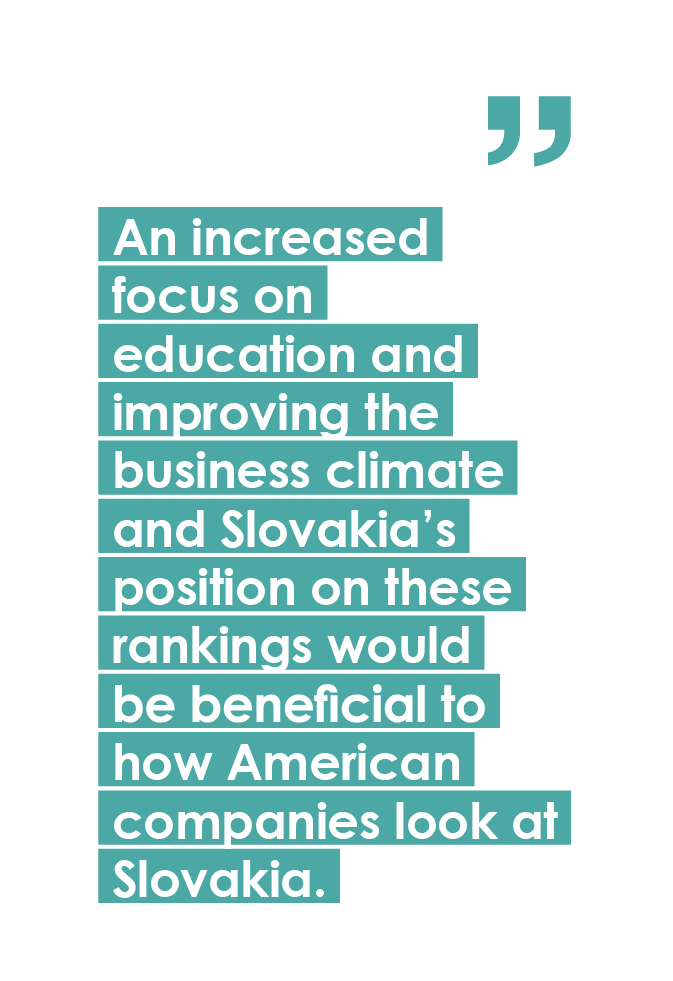
Which experience do you consider the most defining for your career and why?
I started my career in the Balkans in the 1990s. What I experienced there made me see how quickly social order can break down and lead to war. It taught me that our democratic systems are fragile and require both a government that serves and represents its entire population - not just a select few - and a population that is active and informed. It gave me a deep and enduring belief in the importance of a free press, a strong civil society, and a democratic system that operates by the rule of law.
What are the biggest challenges in the life of a career diplomat and what are the rewards?
The biggest challenge is moving every few years. This is also the biggest reward. It is a great honor to be the President’s personal representative overseas and to be able to do so in a country like Slovakia is particularly fun!
What will be your main points of focus during your ambassadorial mission in Slovakia and what specific goals have you set to consider your mission a success?
I am focused on strengthening the ties between the United States and Slovakia. We have seen that over the past thirty years, Slovakia has enjoyed a historically unprecedented era of peace and prosperity. But we have also seen a rise in skepticism toward the United States and the Transatlantic community of values. I think we need to begin to communicate more effectively, and creatively, to remind ourselves of the importance of this relationship - and the values that underpin it - and all the ways we benefit when the United States, Slovakia, and Europe stand together as Friends, Partners, and Allies.
Can we expect a growing interest from American companies in investing in Slovakia or the CEE region in general?
Slovakia is a country with tremendous potential located in the geographic heart of Europe. It is a member of important international organizations including the EU, EURO zone, the Schengen Zone, and NATO. All of these indicate a level of political and economic stability that is greatly valued by American investors.
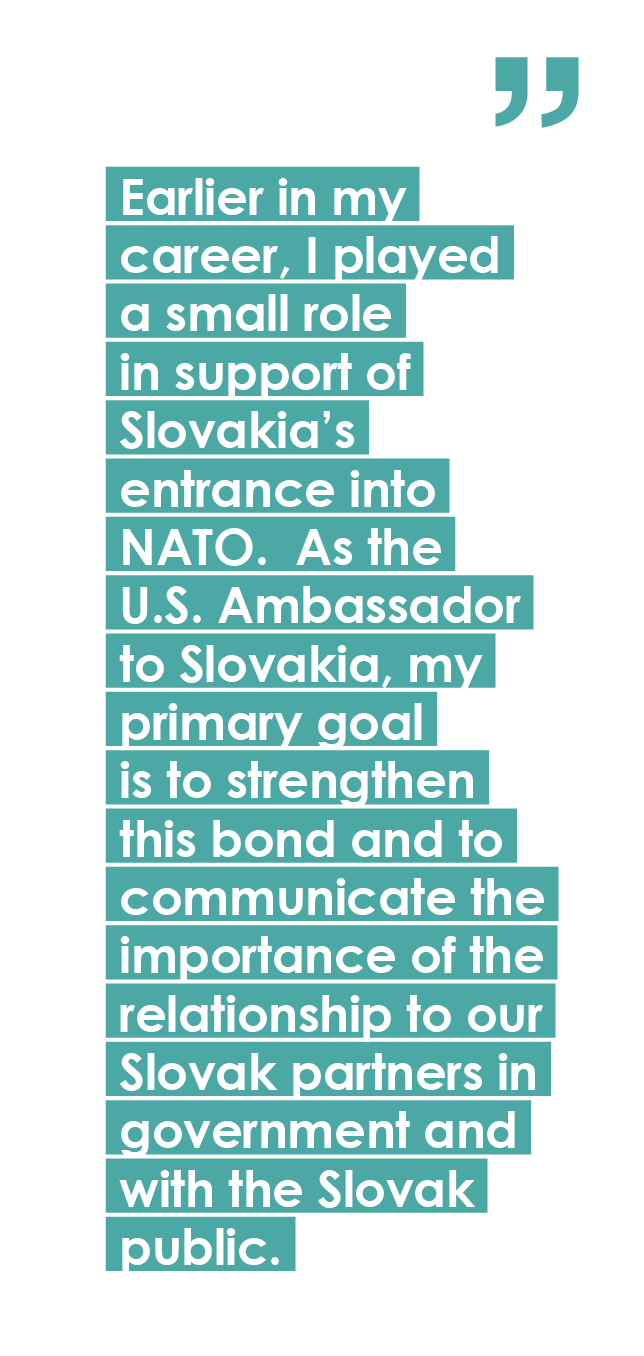 What can be done to improve Slovakia’s position on the investment radar of American companies? What specific agenda is on the table for the next three years for you as the head of the US Embassy in Slovakia?
What can be done to improve Slovakia’s position on the investment radar of American companies? What specific agenda is on the table for the next three years for you as the head of the US Embassy in Slovakia?
U.S. companies pay attention to international business rankings as compiled by the World Bank, World Economic Forum, and Transparency International among others. Unfortunately, Slovakia has been on a slow downward trend in these rankings. Education test scores by the OECD’s Programme for International Student Assessment (PISA) are another important metric that show Slovakia at the bottom of the V4 and below the EU average. Our partners in the business community would also benefit from predictability in social benefits and a business climate that allows them to compete with companies in China and other locations that have different environmental and social standards. An increased focus on education and improving the business climate and Slovakia’s position on these rankings would be beneficial to how American companies look at Slovakia.
American tech companies represent a very attractive employer for young Slovaks. Are you aware of this and why do you think it is so?
I am thrilled that young Slovaks want to work for U.S. tech companies. These are some of the most innovative companies in the world. They are pushing the limits of how technology can solve problems. Working for these firms offers exposure to these technologies as well as to the mindset of innovation.
What key activities do you plan with Slovak Ambassador in US Ivan Korčok in order to open doors for Slovak companies which want expand to the US market?
I have been delighted to work with Slovak Ambassador Ivan Korčok on the broad range of our joint interests. At the Embassy, we also work with the Ministry of Economy and the Slovak Investment and Trade Development Agency (SARIO) to ensure that U.S. companies interested in investing in Slovakia receive the information that they need to make informed decisions. Our Foreign Commercial Service Office at the Embassy, which represents the Department of Commerce, is here to help Slovak companies learn more about investment in the United States.
The U.S. have a thriving ecosystem for innovations. Do you have any plans regarding sharing best practices in this area?
We often bring in professors, students, and business leaders to Slovakia to share best practices in this area. We recently funded a Stanford Professor to come to Bratislava to speak at the FutureNow conference on how to raise venture capital. We also brought two MIT students who founded tech companies to talk about their experiences to students and companies in both Bratislava in Košice. This program was done in conjunction with AmCham and Aj Ty v IT. We also sponsored a Smart Cities expert to come to Slovakia to share best practices with government and non-government partners.
Some of the lessons from these speakers were that there is nothing wrong with failure, and that the important thing is to learn from your mistakes and constantly improve. I am a big believer in this as well: failure is just a road stop on the way to success. They also stressed the tremendous amount of resources that are available online, and that if you want to learn how to code, or to learn another business skill, you can do that all online!
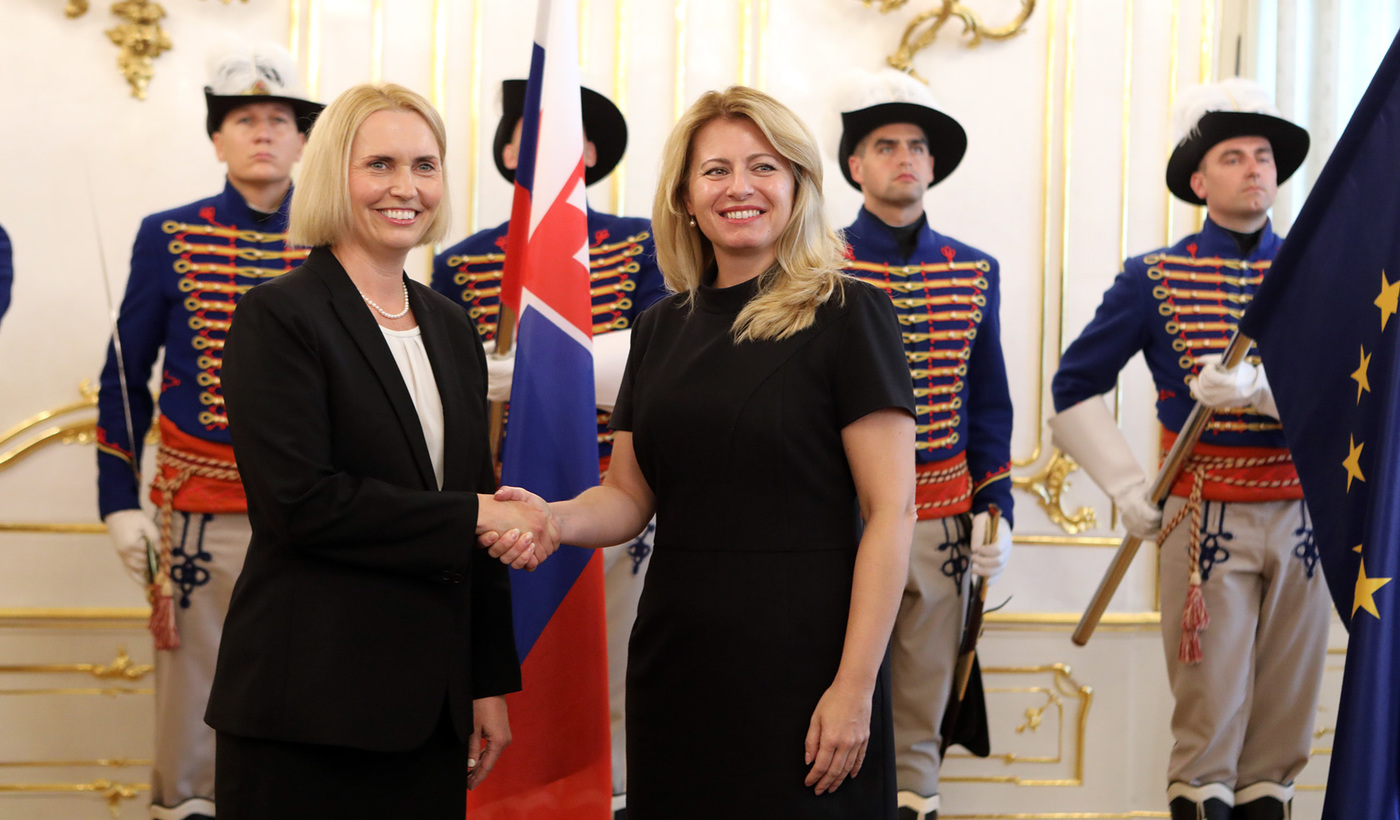

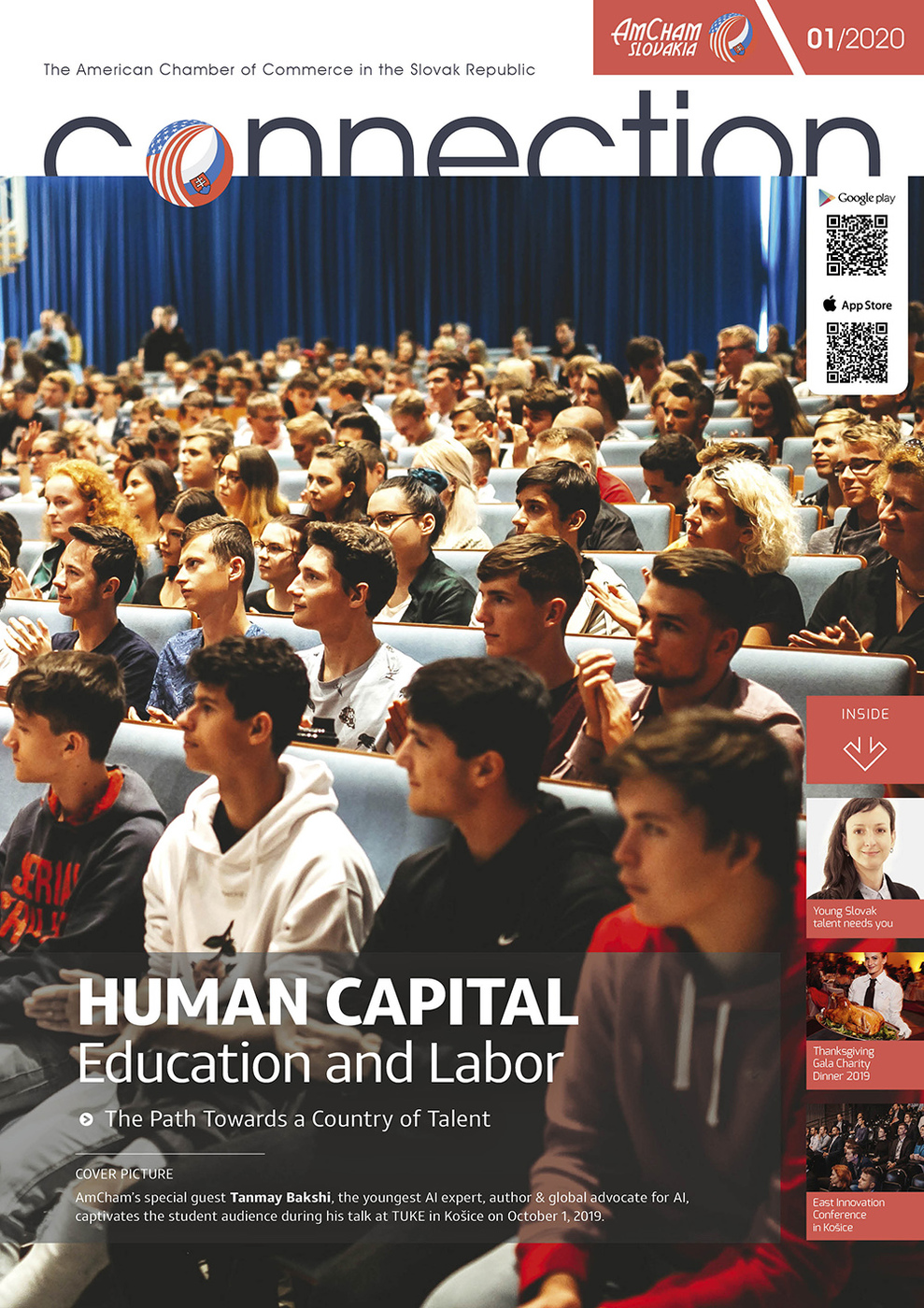
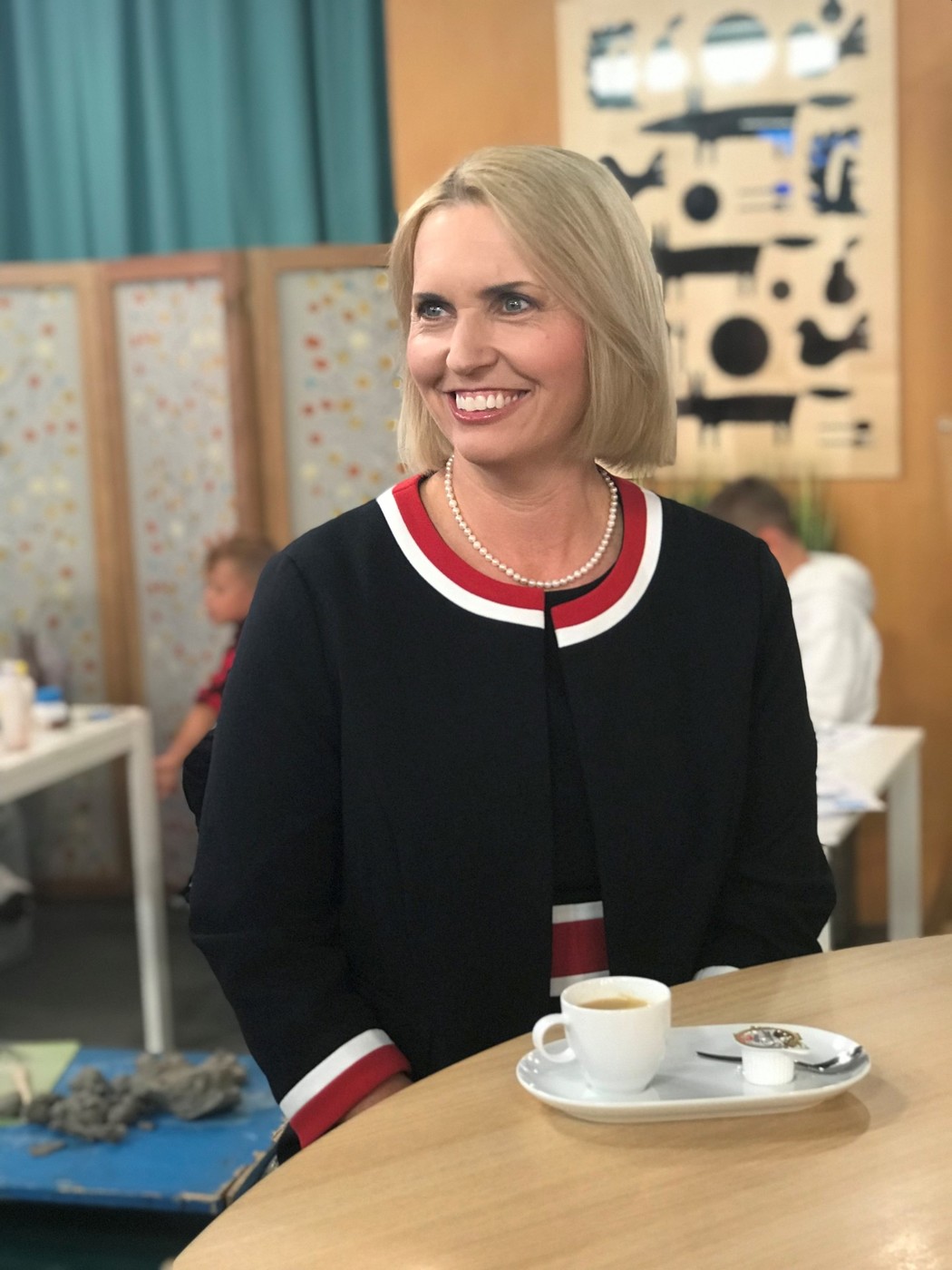
Follow us